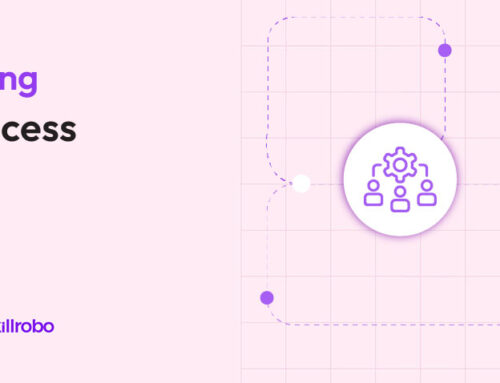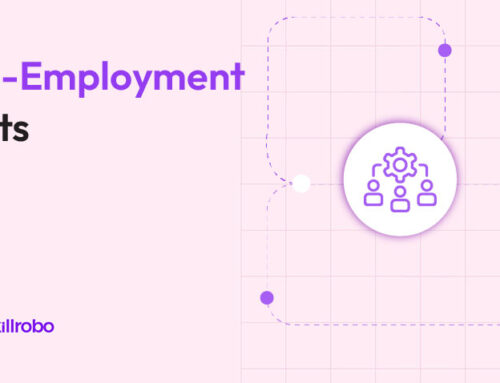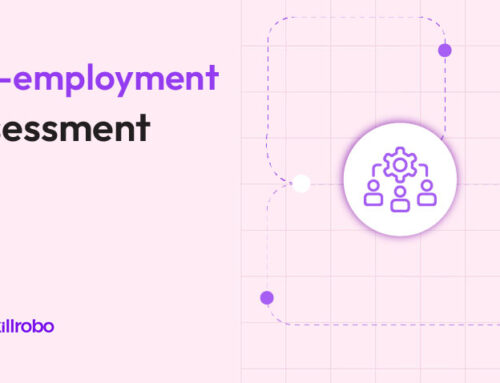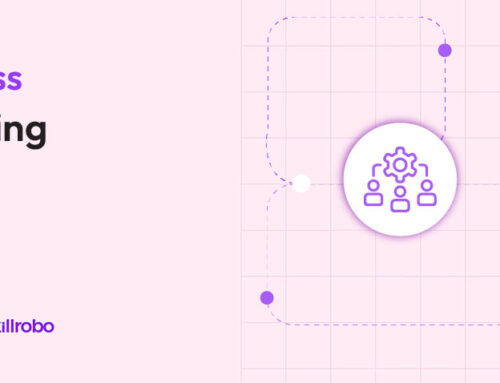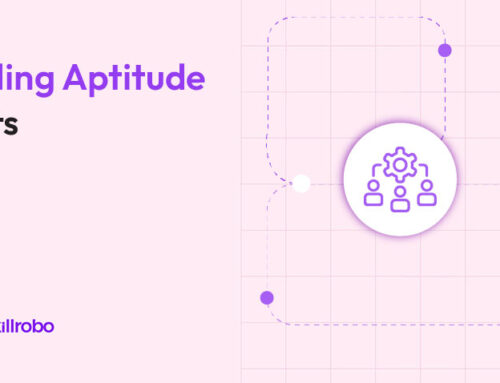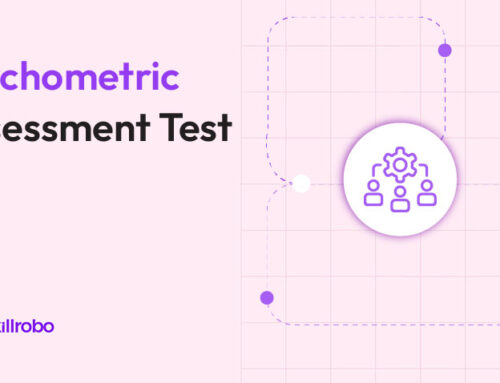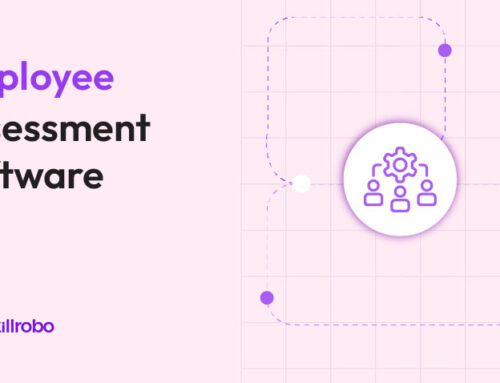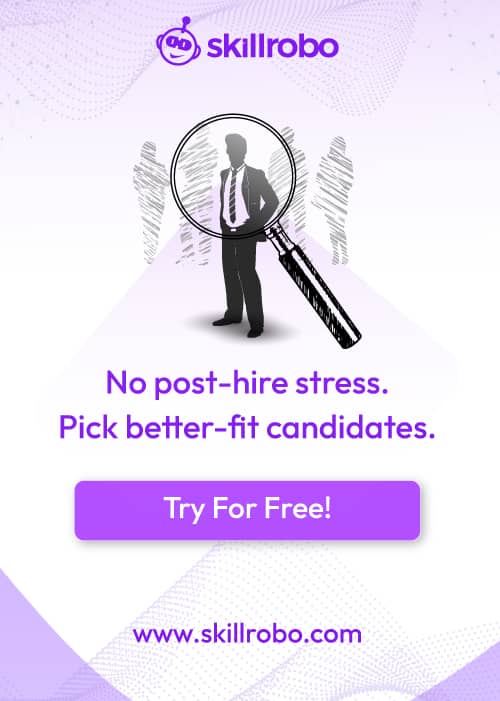Table of Contents
Related articles

Successful hiring requires pre-employment testing. The recruitment process is all about getting to know each candidate as quickly and thoroughly as possible in a limited amount of time. Based on a series of high-pressure interviews, you’re attempting to predict how well a candidate will perform in their day-to-day job. To some extent, this is an impossible task!
Pre-employment assessments can help with this. There are several methods for determining how well your candidate will perform in the role if you give it to them. Some tests may be skill assessments, attempting to understand how your candidate applies their knowledge and experience. Others may be based on personality, to gain insight into your candidate’s behavioral choices, strengths, and weaknesses. The best tests predict how your candidate will perform if hired, as well as how they will fit in with the rest of the organization.
In this blog, we’ll define pre-employment tests, go over some good personality assessments, and explain why they’re so important for hiring the best talent.
What is Pre-Employment Testing?
Pre-employment testing is used to screen candidates before making hiring decisions. Different tests and assessments are used by hiring managers and employers to identify specific candidate skills, characteristics, knowledge, and behavior. The findings enable recruiters to make accurate, data-driven predictions about which candidates are more likely to succeed in a new role.
These tests can range from hard to soft skills, and they can include case studies, assessment challenges, personality tests, and other elements. More importantly, they are applied to every candidate who applies for the position to bring about a reliable and objective standard to measure each candidate’s capabilities.
Why is the Pre-Employment Assessment Necessary?
A pre-employment test can provide more information than a resume or interview, allowing you to compare candidates and make more informed hiring decisions. Incorporating this testing into your hiring process can help you:
- Ensure that your hiring practices are equitable: Bias and discrimination are reduced by using a pre-employment test program. It discovers and documents talent and merit.
- Identifying top candidates can be identified instantly: Implementing an employment test to determine which candidates to invite for interviews.
- Enhance your job interviews: Sample interview questions included with pre-employment test results allow you to delve deeper into important topics, characteristics, and skill areas.
- Locate qualified candidates: Ascertain that candidates possess the necessary knowledge, skills, and abilities for the role and your company culture.
- Reduce the number of bad hires: You can reduce hiring mistakes and lower your turnover rate by determining which candidates have the right personality for a given position.
Pros and Cons of Pre-Employment Testing
Pros:
- Better Hiring Decisions: Pre-employment testing can provide valuable information about a candidate that may not be apparent during an interview. This information helps employers make more informed hiring decisions, leading to better hires and less turnover.
- Time-Saving: These tests can be administered to multiple candidates at once, which can save time for hiring managers. These tests can quickly narrow down the candidate pool, allowing hiring managers to focus on the most qualified candidates.
- Objective Assessment: It provides an objective way to assess a candidate’s skills and abilities. This can help reduce the impact of biases and personal opinions on the hiring process, leading to fairer and more objective hiring decisions.
- Improved Employee Retention: These tests can help identify candidates who are a good fit for the company culture and work style. This can lead to improved employee retention as candidates who are a good fit are more likely to stay with the company long-term.
Cons:
- Cost: Pre-employment testing can be expensive, especially if multiple tests are used. This can be a barrier for small businesses or those with limited budgets.
- False Positives and Negatives: It is not foolproof, and there is a risk of false positives and negatives. A candidate may perform well in the test but not be a good fit for the company, or vice versa.
- Legal Issues: Pre-employment tests must be designed and administered in a way that is compliant with federal and state laws, such as the Americans with Disabilities Act (ADA). Failure to comply with these laws can result in legal issues for the company.
- Negative Candidate Experience: Candidates may feel uncomfortable or discouraged by pre-employment tests, especially if they are not informed ahead of time. This can negatively impact the candidate’s experience and the company’s reputation.
What are Personality Tests in Hiring?
A pre-employment personality test is used by potential employers to evaluate candidates’ behavior and character qualities to determine if they are a good fit for the position. Personality tests look at things like your motivations, communication style, and work preferences.
These assessments are designed to evaluate a wide range of candidate personality traits and are designed to determine whether a candidate will fit easily into a company’s work culture and whether they have the right temperament for the job.
Why do Companies need Personality Assessments?
Personality tests are valuable tools for hiring, and retaining top talent. Personality is a proven predictor of job performance, and assessing a candidate’s behavioral tendencies in the workplace assists recruiters and headhunters in determining whether he or she will thrive in the open position and fit into the employer’s company culture.
These tests provide important insights but intangible information about prospects, such as their personality, values, and work preferences. According to research, when employees are placed in positions that do not match their personalities, it frequently leads to dissatisfaction. As a result, productivity is low and turnover is high.
With the current unemployment rate and talent shortage in most industries, it’s understandable that businesses want to do everything they can to ensure that new hires become valuable, long-term team members.
Pre-employment job personality assessments are usually delivered online and processed immediately. The results are validated and compared to those of other candidates. This speeds up the hiring process and increases the likelihood that prospects are a good fit for the opportunity and the company.
A standard interview will not give recruiters enough information about a candidate’s personality. Behavioral assessments provide a deeper dive into a prospect’s strengths, weaknesses, and preferences.
Conclusion
Pre-employment testing can be a valuable tool in the hiring process, but it’s important to consider both the pros and cons before implementing these tests. Companies should carefully consider their budget, legal requirements, and candidate experience when deciding whether to use candidate testing. By weighing the pros and cons, companies can make informed decisions that lead to better hiring outcomes.
Personality tests help employers make positive, data-driven hiring decisions. These assessments can help determine if a candidate has the right personality for the job and will be a good fit in the company’s work environment. While personality tests are not foolproof and there is a risk of false positives and negatives, a candidate who scores well on these exams is more likely to succeed in the role and fit in well with other employees.
Your company’s hiring success relies on a successful first impression. Skillrobo is a pre-employment assessment tool that allows the organization to refine the qualified candidates with their customizable skill library with skill tests. It helps the framework for hiring managers to ensure that the right person is selected for the job.
Refine your hiring process with Skillrobo now and find the perfect candidate by Signing Up now!

Successful hiring requires pre-employment testing. The recruitment process is all about getting to know each candidate as quickly and thoroughly as possible in a limited amount of time. Based on a series of high-pressure interviews, you’re attempting to predict how well a candidate will perform in their day-to-day job. To some extent, this is an impossible task!
Pre-employment assessments can help with this. There are several methods for determining how well your candidate will perform in the role if you give it to them. Some tests may be skill assessments, attempting to understand how your candidate applies their knowledge and experience. Others may be based on personality, to gain insight into your candidate’s behavioral choices, strengths, and weaknesses. The best tests predict how your candidate will perform if hired, as well as how they will fit in with the rest of the organization.
In this blog, we’ll define pre-employment tests, go over some good personality assessments, and explain why they’re so important for hiring the best talent.
What is Pre-Employment Testing?
Pre-employment testing is used to screen candidates before making hiring decisions. Different tests and assessments are used by hiring managers and employers to identify specific candidate skills, characteristics, knowledge, and behavior. The findings enable recruiters to make accurate, data-driven predictions about which candidates are more likely to succeed in a new role.
These tests can range from hard to soft skills, and they can include case studies, assessment challenges, personality tests, and other elements. More importantly, they are applied to every candidate who applies for the position to bring about a reliable and objective standard to measure each candidate’s capabilities.
Why is the Pre-Employment Assessment Necessary?
A pre-employment test can provide more information than a resume or interview, allowing you to compare candidates and make more informed hiring decisions. Incorporating this testing into your hiring process can help you:
- Ensure that your hiring practices are equitable: Bias and discrimination are reduced by using a pre-employment test program. It discovers and documents talent and merit.
- Identifying top candidates can be identified instantly: Implementing an employment test to determine which candidates to invite for interviews.
- Enhance your job interviews: Sample interview questions included with pre-employment test results allow you to delve deeper into important topics, characteristics, and skill areas.
- Locate qualified candidates: Ascertain that candidates possess the necessary knowledge, skills, and abilities for the role and your company culture.
- Reduce the number of bad hires: You can reduce hiring mistakes and lower your turnover rate by determining which candidates have the right personality for a given position.
Pros and Cons of Pre-Employment Testing
Pros:
- Better Hiring Decisions: Pre-employment testing can provide valuable information about a candidate that may not be apparent during an interview. This information helps employers make more informed hiring decisions, leading to better hires and less turnover.
- Time-Saving: These tests can be administered to multiple candidates at once, which can save time for hiring managers. These tests can quickly narrow down the candidate pool, allowing hiring managers to focus on the most qualified candidates.
- Objective Assessment: It provides an objective way to assess a candidate’s skills and abilities. This can help reduce the impact of biases and personal opinions on the hiring process, leading to fairer and more objective hiring decisions.
- Improved Employee Retention: These tests can help identify candidates who are a good fit for the company culture and work style. This can lead to improved employee retention as candidates who are a good fit are more likely to stay with the company long-term.
Cons:
- Cost: Pre-employment testing can be expensive, especially if multiple tests are used. This can be a barrier for small businesses or those with limited budgets.
- False Positives and Negatives: It is not foolproof, and there is a risk of false positives and negatives. A candidate may perform well in the test but not be a good fit for the company, or vice versa.
- Legal Issues: Pre-employment tests must be designed and administered in a way that is compliant with federal and state laws, such as the Americans with Disabilities Act (ADA). Failure to comply with these laws can result in legal issues for the company.
- Negative Candidate Experience: Candidates may feel uncomfortable or discouraged by pre-employment tests, especially if they are not informed ahead of time. This can negatively impact the candidate’s experience and the company’s reputation.
What are Personality Tests in Hiring?
A pre-employment personality test is used by potential employers to evaluate candidates’ behavior and character qualities to determine if they are a good fit for the position. Personality tests look at things like your motivations, communication style, and work preferences.
These assessments are designed to evaluate a wide range of candidate personality traits and are designed to determine whether a candidate will fit easily into a company’s work culture and whether they have the right temperament for the job.
Why do Companies need Personality Assessments?
Personality tests are valuable tools for hiring, and retaining top talent. Personality is a proven predictor of job performance, and assessing a candidate’s behavioral tendencies in the workplace assists recruiters and headhunters in determining whether he or she will thrive in the open position and fit into the employer’s company culture.
These tests provide important insights but intangible information about prospects, such as their personality, values, and work preferences. According to research, when employees are placed in positions that do not match their personalities, it frequently leads to dissatisfaction. As a result, productivity is low and turnover is high.
With the current unemployment rate and talent shortage in most industries, it’s understandable that businesses want to do everything they can to ensure that new hires become valuable, long-term team members.
Pre-employment job personality assessments are usually delivered online and processed immediately. The results are validated and compared to those of other candidates. This speeds up the hiring process and increases the likelihood that prospects are a good fit for the opportunity and the company.
A standard interview will not give recruiters enough information about a candidate’s personality. Behavioral assessments provide a deeper dive into a prospect’s strengths, weaknesses, and preferences.
Conclusion
Pre-employment testing can be a valuable tool in the hiring process, but it’s important to consider both the pros and cons before implementing these tests. Companies should carefully consider their budget, legal requirements, and candidate experience when deciding whether to use candidate testing. By weighing the pros and cons, companies can make informed decisions that lead to better hiring outcomes.
Personality tests help employers make positive, data-driven hiring decisions. These assessments can help determine if a candidate has the right personality for the job and will be a good fit in the company’s work environment. While personality tests are not foolproof and there is a risk of false positives and negatives, a candidate who scores well on these exams is more likely to succeed in the role and fit in well with other employees.
Your company’s hiring success relies on a successful first impression. Skillrobo is a pre-employment assessment tool that allows the organization to refine the qualified candidates with their customizable skill library with skill tests. It helps the framework for hiring managers to ensure that the right person is selected for the job.
Refine your hiring process with Skillrobo now and find the perfect candidate by Signing Up now!

